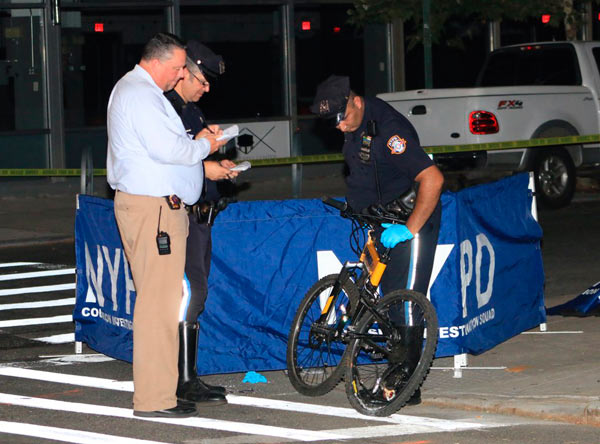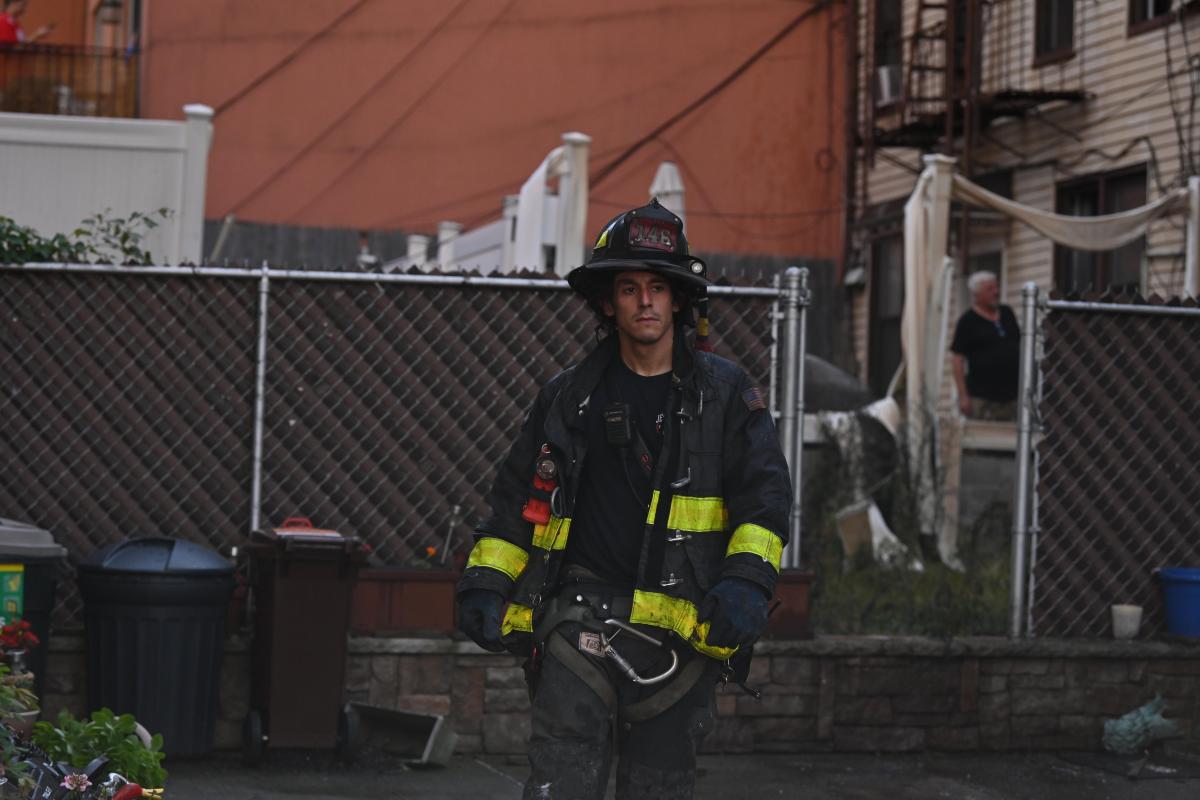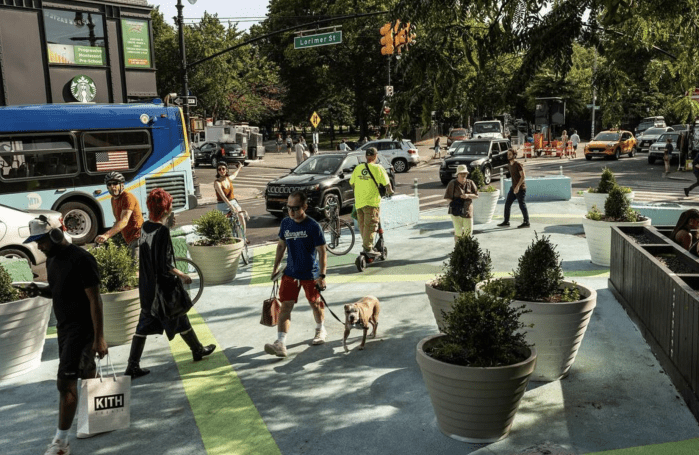Police will not charge the driver of a commercial garbage truck who hit and killed a cyclist in Greenpoint on July 22 then left the scene, but still have not closed the case — a move that keeps evidence secret, potentially until the controversy surrounding the death blows over.
Five separate police spokespeople told the Brooklyn Paper on Aug. 11 that no criminal charges are being made against the male motorist who killed 27-year-old Neftaly Ramirez because a three-week investigation found the driver didn’t know he hit the bike rider, but then said the probe is ongoing and refused to say what evidence is necessary to close the case — a tactic that keeps the public from accessing the crash investigation report, which would shed light on what happened, according to experts.
“You don’t make a determination and then say it’s ongoing,” said attorney Adam White, who represents injured cyclists and pedestrians. “It’s the epitome of stupidity and arrogance. They’ve made up their minds, but to block any scrutiny, they say the investigation is ongoing, which blocks journalists and family members from obtaining the crash investigation report. By saying it’s not complete and dragging things on for six months or a year, the smoke clears and the case gets old. People forget.”
Cops have been looking into whether the driver — an employee of private trash collector Action Carting — knew he hit Ramirez, who was pedaling home from work at Paulie Gee’s pizzeria on Franklin Street when the motorist made a right turn onto Noble Street and struck him.
But an NYPD rep said police determined that the driver didn’t know he hit the cyclist, claiming it’s impossible to convict him of a crime he had no idea he committed, especially since he was operating a massive garbage truck.
“You need probable cause to arrest someone. If someone hits someone and it’s a big gigantic garbage truck and they don’t know they hit him, you can’t charge someone with a crime,” said Lieutenant John Grimpel.
There is no video of the actual collision, according to Grimpel, who said cops talked to the driver and his colleague who allegedly was in the passenger seat at the time of the crash, but refused to say what the decision not to press charges is based on.
He then refused to clarify what is keeping the case open, saying they don’t close in 24 hours — despite the probe being active for weeks.
Another legal expert said cops often get everything needed to convict someone in one to two days and may find new corroborating evidence, such as interviews with 911 callers, a few weeks later, but anything that would make a big difference is rarely found that far out.
“Most of the evidence they rely upon is usually collected within 24 to 48 hours, maybe a week or two,” said attorney Daniel Flanzig, who represents cyclists and pedestrians across the city. “I can’t imagine what they’re going to recover that they haven’t recovered already. I never see developments later on that they didn’t have before.”
Police typically keep a case open to make it appear as if there’s still a chance charges can be brought, he said.
“To satisfy journalists and the public they keep their files open for six to 12 months,” said Flanzig.
Both attorneys said authorities at the very least could issue the driver a summons for not yielding to Ramirez while making his right turn, but another police spokesman said the driver wasn’t guilty of violating that law.
“That’s not what the investigation is showing,” said Detective Ahmed Nasser.
But cops often don’t put effort into probing cyclist and pedestrian fatalities because it’s easy to let suspects off when their victims are dead, according to White, who said it’s not uncommon for tapes of 911 calls and interviews with witnesses at the scene to go missing.
“Nine times out of 10 the police just figure it’s the driver’s word against a dead person’s,” he said. “Why do they do this? It’s easy, they’re lazy, they’re prejudiced — I don’t know. It’s not a priority for them. They don’t think of it as a crime and they do a half-assed investigation.”
The District Attorney’s office is also responsible for conducting a separate investigation, but usually relies on police reports instead of doing its own work, said White.
“It seems to me the DA’s office relies entirely too much upon the police making the assessment whether there’s any criminality,” he said.
A rep for the District Attorney’s office refused to comment on the details of the case and said it will be closed “when all investigatory avenues have been concluded and a final conclusion has been reached.”
He refused to say which other avenues are currently being explored.
Police are also refusing to release the name of the driver, claiming it is against policy to identify persons of interest before an arrest is made, despite having named suspects of past ongoing investigations numerous times.
Flanzig said it’s uncommon for cops to reverse their decision and decide to press charges, but that it has happened when police are pressured to hold someone accountable.
“It tends to be political pressure or journalists putting pressure on the NYPD when they turn around and make the charges,” he said.























